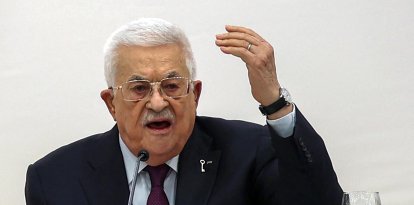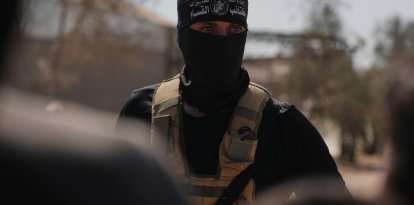Ceasefire agreement between Israel and Hamas: The Jewish state must continue to win
Beyond the discussions surrounding the agreement, it is crucial to look to the future and recognize that all of Israel's achievements, including peace treaties with several Arab nations, were made possible by its remarkable victories in defensive wars. As such, it cannot afford to be distracted again, not even for a moment.

Israeli soldiers in Gaza.
Israel and Hamas have reached a ceasefire agreement. However, at the time of publication, Israeli Prime Minister Benjamin Netanyahu had decided to postpone the signing of the treaty due to non-compliance by the Palestinian terrorist group. Nevertheless, all indications suggest that the ceasefire will be implemented very soon.
As expected, Palestinians took to the streets to celebrate Hamas' "victory" in the Gaza war following the October 7 massacre. Prior to this, they had been chanting "genocide" day after day, calling for an end to the war on "humanitarian" grounds. Now, it seems they view it as a victory. It's a strange shift.
Moreover, looking at the aftermath in the Middle East, it doesn't appear that Hamas and its allies emerged victorious. Gaza was significantly damaged, thousands of terrorists were killed in combat, and many of Hamas's top leaders are dead, as are those of Hezbollah. The group has suffered substantial casualties, with some members injured or killed under mysterious circumstances, including explosions involving their equipment, leaving many grievously wounded or dead.
On the other hand, the brutal Syrian regime of Bashar al-Assad has fallen into the hands of Sunni jihadists who hate Israel, but whose most direct enemies today are the Shiite ayatollahs of Iran and their proxies in the region, such as Hezbollah (also Shiites) and Hamas (Sunnis, but with a shared agenda when it comes to attacking Jews). As a result, attacks on Israel from the north may not be as easily carried out. Additionally, the new Syrian government is likely to be radical, but they have witnessed Israel's military actions against their enemies and are wary of meeting a similar fate. For now, they are attempting to present a more moderate image, though it may not be genuine, as it serves their interests to maintain this appearance.
Who is left? The pro-Iranian terrorist groups in Iraq, who have ceased attacking Israel under pressure from both the Iraqi government and Iranian authorities to avoid escalating the conflict, knowing that Israel was prepared to respond. Then there are the Houthis in Yemen, who continue to launch missiles and drones at Israel, as well as targeting merchant and military ships in the Red Sea and the Gulf of Aden. Both Israel and the United States are addressing this ongoing threat.
Moreover, all the terrorist groups that have ruled, directly or indirectly, with the support of the Iranian regime—whether fully or partially—have contributed to the destruction of their own countries economically, socially, culturally, and politically. At the same time, Iran itself is deeply immersed in a crisis.
From an objective standpoint, it could be said that Iran’s defeat is both overwhelming and humiliating. In the new Middle East, not only are Iran and its allies in a calamitous state, but it is also likely that more Arab nations, aligned with the West, will continue to join the Abraham Accords, which Israel signed with the United Arab Emirates, Bahrain, Morocco, and Sudan. It is widely anticipated that Saudi Arabia will eventually join the path to peace, and the domino effect will become inevitable. The ayatollahs and their proxies will be left more isolated and weaker than ever in the region.
Meanwhile, despite everything, Israel remains an economic powerhouse, with a population that enjoys a high standard of living. It's no wonder it's known as the "Startup Nation." Perhaps if its enemies shifted their focus from destruction to creation, they too could thrive—or even do better.
There is an agreement, so now what?
The cease-fire agreement between Israel and Hamas has garnered both praise and criticism, as expected. However, amidst the discussions, the priority must be the release of hostages. This will come at a steep cost, as it is estimated that over a thousand terrorists imprisoned in Israel will be set free in the process.
Now, Israel must focus on the long term. The price being paid in this war is undeniably high because the Jewish state values life, and the loss of any soldier or civilian is deeply painful. This stands in stark contrast to its enemies, who place greater value on death and are willing to sacrifice their own children in pursuit of a racist and genocidal agenda.
The hoax of the 'innocent civilians' in Gaza
The narrative of innocent civilians in Gaza must be reconsidered. Israel has already sacrificed many lives, too many, in an effort to avoid harming the civilian population that is supposedly uninvolved in the conflict. However, it is important to acknowledge that on October 7, it was not only members of a terrorist organization who carried out atrocities—many civilians were also directly involved in acts of murder, dismemberment, arson, and rape.
Additionally, polls consistently show that a large majority of Palestinians, both in Gaza and the West Bank, justify the October 7 massacre and, if given the chance, would commit genocide against Jews and Israelis. This disturbing mindset is a direct consequence of the pervasive indoctrination of hatred to which Palestinian children are subjected—encouraged not only by their own leadership but also by organizations like the UNRWA, whose activities were already banned in Israeli territory and are increasingly under threat of being halted in Gaza and the West Bank.
However, Israel is not responsible for this indoctrination and has every right to defend itself against those who seek its destruction. The country must remain vigilant along all its borders and in the face of any attack, no matter how minor, while no longer placing undue concern on innocent civilians to the detriment of its own security. Those who initiate war with genocidal and racist intentions are not victims; they must bear the consequences of their actions. Therefore, whatever occurs during the conflict will rest squarely on the shoulders of those who initiated hostilities.
Many will continue to target Israel, regardless of how much it respects international law and the rights of innocent civilians. As a result, Israel must focus solely and exclusively on its defense. With this in mind, it is likely that Trump will allow the Jewish state to act with greater freedom and autonomy in safeguarding its security.
Israel cannot be distracted again
To prevent another October 7 and ensure the Middle East moves toward the path set by the Abraham Accords, it is essential to remove Iran from the equation. Israel must not allow those who continue to seek its destruction any breathing room, as the Jewish State's continued existence relies heavily on its military strength.
All of Israel's accomplishments, including peace agreements with several Arab nations, have been secured through its remarkable victories in defensive wars. As a result, the Jewish state cannot afford to be distracted, even for a moment; it must remain focused on continuing to win.


























